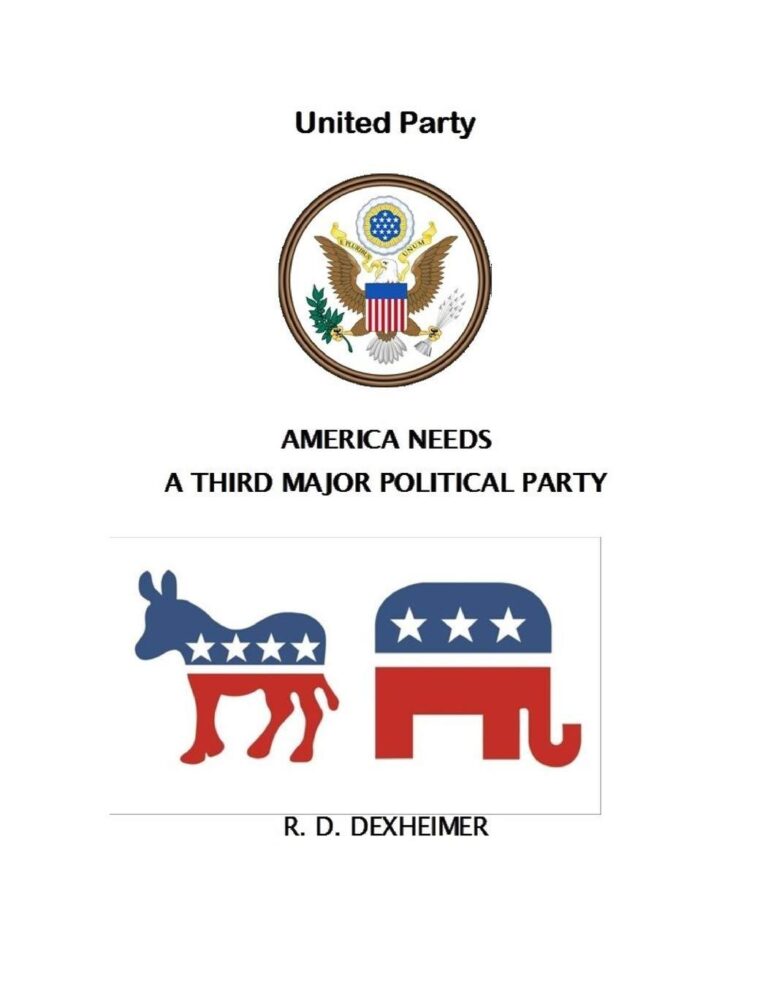In a provocative call that has reignited debate over the state of American politics, Elon Musk, the billionaire entrepreneur and CEO of Tesla and SpaceX, has publicly asserted that the United States needs to establish a third major political party. MuskŌĆÖs remarks come amid growing dissatisfaction with the current two-party system, which many critics argue contributes to polarization and gridlock in Washington. As the nation grapples with complex social, economic, and political challenges, his suggestion raises pressing questions about whether a new political force could reshape the American political landscapeŌĆöor further fragment it. This article explores MuskŌĆÖs proposal and invites readers to weigh in on the future of U.S. party politics.
MuskŌĆÖs Call for a Third Political Party Sparks National Debate
Elon MuskŌĆÖs recent advocacy for establishing a third political party has ignited a heated national discussion on the future of American democracy. Supporters argue that a new party could break the longstanding two-party monopoly, offering voters more choices and promoting bipartisan cooperation. Critics, however, caution that such a move risks fragmenting the electorate and potentially leading to greater political instability. This divide highlights the complexity of AmericaŌĆÖs political landscape, where voter dissatisfaction with traditional parties continues to grow.
Public opinion remains split on the efficacy and feasibility of MuskŌĆÖs proposal. Key points in the debate include:
- Electoral System Challenges: The winner-takes-all structure may hinder third-party success.
- Voter Representation: Potential to better reflect diverse viewpoints.
- Risk of Vote Splitting: Could inadvertently strengthen opposition parties.
| Pros | Cons |
|---|---|
| Increased political diversity | Possible electoral fragmentation |
| Encourages new policies | Risk of weakening major party platforms |
| More voter engagement | Difficult startup and ballot access |
Analyzing the Potential Impact on AmericaŌĆÖs Two-Party System
Introducing a third party could dramatically reshape the American political landscape, challenging the long-standing dominance of the Democrats and Republicans. Such a shift may encourage a broader spectrum of ideas and policies, potentially increasing voter engagement and representation. However, the entrenched electoral systemŌĆöcharacterized by the winner-takes-all approachŌĆöposes significant hurdles for third-party candidates to gain meaningful traction. Voters may also face the dilemma of “splitting the vote,” which historically benefits the less favored major party.
HereŌĆÖs a snapshot of possible effects this new dynamic could have on national politics:
- Policy Innovation: Diverse perspectives could push major parties to adopt fresh approaches.
- Electoral Complexity: Coalition-building might become necessary to form governing majorities.
- Voter Choice: Increased options could empower disenfranchised voters but also confuse and overwhelm some.
| Potential Impact | Positive Outcome | Possible Challenge |
|---|---|---|
| Policy Innovation | Fresh ideas enter political discourse | Poor coordination between parties |
| Voter Engagement | Expanded voter turnout | Confusion over candidate platforms |
| Electoral Dynamics | Coalitions foster compromise | Political gridlock risk increases |
Challenges and Opportunities in Establishing a Viable Third Party
Creating a viable third party in the deeply entrenched two-party system presents a complex web of challenges. The current political landscape in the U.S. is marked by institutional barriers, such as stringent ballot access laws and the Electoral College system, which heavily favor Democrats and Republicans. Additionally, third-party candidates often struggle with limited funding, lack of media coverage, and voter skepticism about their ability to win, all of which contribute to a persistent perception of “wasted votes.” These factors create a steep uphill climb for any new political entity seeking legitimacy and broad support.
However, the emergence of a third party also offers notable opportunities. It could encourage political innovation, compelling the two major parties to become more responsive to diverse voter concerns, and potentially reducing polarization by providing alternatives that better represent varied ideologies. A rough outline of the potential benefits and obstacles can be seen in the table below:
| Opportunities | Challenges |
|---|---|
| Enhanced voter representation | Ballot access restrictions |
| Greater policy innovation | Limited campaign financing |
| Reduction in political polarization | Media marginalization |
| Engagement of disenchanted voters | Electoral College bias |
Pathways Forward Recommendations for Political Reform and Civic Engagement
To invigorate political discourse and increase voter participation, reform efforts should focus on expanding alternatives beyond the traditional two-party system. Establishing a third political party is one viable avenue, but success demands more than just creating new labels. It requires a comprehensive strategy to overhaul electoral rules that often marginalize minor parties, such as the introduction of ranked-choice voting and proportional representation. These reforms can foster a more inclusive political landscape where diverse voices are heard and empowered.
Key recommendations for driving meaningful political reform and civic engagement include:
- Implementing nationwide ranked-choice voting to ensure majority support for elected officials.
- Promoting grassroots education campaigns focused on civic responsibility and political literacy.
- Increasing transparency in campaign financing to rebuild public trust.
- Encouraging bipartisan dialogue and cooperation through community forums and digital platforms.
In Conclusion
As the debate over America’s political future intensifies, Elon MuskŌĆÖs call for a third party adds a compelling dimension to the ongoing discourse about representation and governance. Whether this idea gains traction or remains a controversial proposal, it undeniably highlights widespread dissatisfaction with the current two-party system. Readers are encouraged to share their perspectives on whether a new political option could reshape the American political landscape or further complicate an already divided nation.




